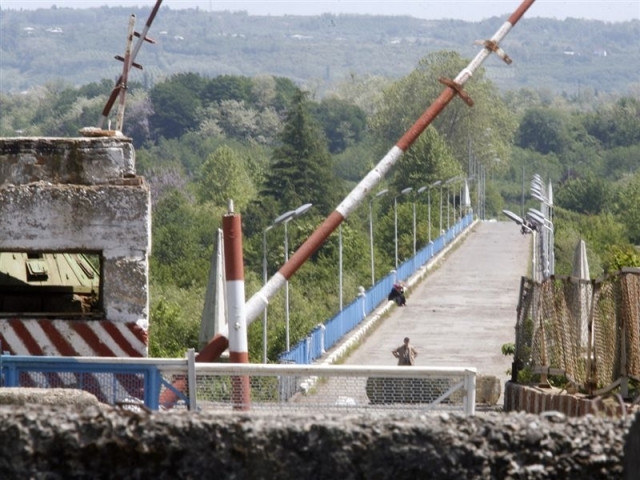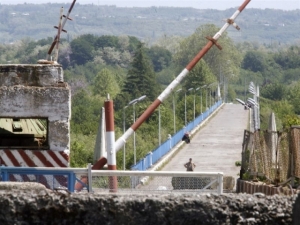Breakaway Abkhazia to Resume IPRM Borderline Meetings after 4 Year Break
TBILISI - Georgia and its secessionist Abkhazia region have reached an agreement to resume Incident Prevention and Response Mechanism (IPRM) meetings in Gali after four years.
The decision to restore IPRM meetings in Gali was made on Wednesday, at the 35th round of the Geneva International Discussions.
The IPRM was agreed as a status neutral mechanism between the sides in 2009, as part of the Geneva International Discussions.
However, it was suspended in 2012, after the Abkhazian side slammed then head of EUMM Andrzej Tyszkiewicz as an “undesirable person on the Abkhaz territory”.
Yesterday, a Special Representative of the OSCE Chairmanship Gernot Erler released a statement and welcomed the agreement reached during the Geneva talks.
“The IPRM will help to solve pressing humanitarian issues and to make daily life easier for the affected population. I call on the participants to hold a first IPRM meeting at the earliest possible convenience,” Erler stated.
While IPRM meetings are regularly held with Georgia’s another breakaway South Ossetia’s region, involving officials from Tbilisi, Tskhinvali, as well as representatives of the Russian troops on the ground and EUMM, such meetings on the Abkhaz side in Gali have been suspended since March 2012.
In April 2012, the de-facto Abkhazia’s Foreign Ministry released a statement which stated that the EUMM, under the leadership of Tyszkiewicz, ignored their requests and carried out unbiased monitoring and gave an objective assessment to processes posing a threat to security.
“In particular, Mr. Tyszkiewicz left without due attention process of establishing illegal armed groups on Georgian territory adjacent to Abkhazia and South Ossetia about which a number of Georgian politicians have reported,” the statement read.
In advance of the Geneva talks, the Georgian Speaker in Parliament, Davit Usupashvili, stated that Russia’s influence is gradually increasing in occupied Abkhazia.
“The region is forced to fully obey Russia's approaches. As for the meetings of the incident prevention and response mechanisms in Gali, I don’t have a very optimistic attitude, but I don’t rule out, because in general, your own interests would always outweigh the interests of others”, Usupashvili commented.
The EUMM monitoring mission was established by the European Union on September 15, 2008, to maintaining a peaceful environment on the ground following a brief war between Russia and Georgia in August 2008.
Immediately following the collapse of the Soviet Union, Russian-backed rebels in Abkhazia broke away from Georgia. Moscow occupied and effectively annexed the area, as well as Georgia’s other breakaway South Ossetia region.
Moscow recognized South Ossetia and the other occupied Abkhazia region as independent states following the 2008 war.
International law and the United Nations continue to state that the regions remain part of Georgia.
Edited by Chloe Diamond












